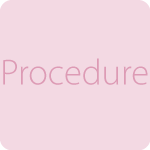

Steps of conception through IVF
Ovulation Induction: Injectable medication is used to stimulate development of multiple mature follicles. The eggs develop in structures in the ovaries called follicles. Some women do not develop mature follicles without help from medication. Each follicle seen on the ultrasound normally contains one egg.
Retrieval: When a number of the woman’s follicles are measuring over 18mm, the egg aspiration procedure is performed to remove the eggs. The procedure is done under sedation for the ladies’ comfort.
Fertilization: Sperm is mixed with the eggs about four hours after the egg aspiration, and can be checked the following day to see if fertilization has occurred.
Embryo Culture: The fertilized eggs, now embryos, are cultured in the laboratory for between 2 to 5 days and then an appropriate number are selected for transfer to the woman’s uterus.
Transferring Embryos to the Uterus: Typically 2-3 embryos are transferred in a procedure similar to a Pap smear. Success for this part of the procedure depends on the delicate placement of the embryos near the top of the endometrial cavity. The embryo transfer catheter is loaded with the embryos and it is put through the cervical opening up through to the top of the uterine cavity. This is not painful and no drugs are necessary. The embryos are then squirted out of the catheter to the endometrial lining of the uterine cavity and the transfer is complete. The woman usually stays on her back for 1-2 hours and then relaxes completely for the next day or two.
Test for Pregnancy: About 14 days after the transfer, a blood test is done on the woman to find out if she is pregnant.
The Procedure Following Embryo Transfer
- For 14 days following the embryo transfer you should take daily progesterone (Cyclogest or Gestone).
- On the 14th day it is essential to perform a pregnancy test on an early morning urine sample. This is the first opportunity to find out if implantation has been successful or not. Or if possible come to the clinic for a beta HCG - blood test.
- If the result is negative, you must continue on the medication for two further days and then repeat the pregnancy test.
- If the result is again negative all drugs must be stopped and, after the onset of the next period, you should return to your usual hormone replacement therapy or your natural cycle.
- If you are pregnant, you will be monitored until the 7th week of pregnancy when a transvaginal ultrasound will be performed to see a fetal heart beat.
- In case pregnancy is not achieved and more than two eggs have fertilised (which we would expect will be the result in most cases) you will be able to have another embryo transfer. The first step towards this is a follow-up consultation.
- There are some additional fees involved which we discuss with you at the appropriate time.
YOUR PREGNANCY
- If the pregnancy test is positive, the same drug regime is followed until the 12th week of pregnancy. It is important to continue the medication.
- A scan will be arranged in order to confirm the number of embryos which have implanted and to monitor the fetal heart beat at seven weeks gestation.
- At week twelve, a blood specimen will be taken to measure the levels of progesterone. If this level is acceptable, drug supplementation will be stopped and hormones from the placenta will then continue to support the pregnancy.
- We hope that you will have a trouble-free pregnancy. You should be aware, however, that you are more likely to experience problems with your blood pressure than women who conceive with their own eggs. Increased rate of pregnancy-induced hypertension, pre-eclampsia, hospital admission and Caesarean Section have been reported and you should be aware of this.













